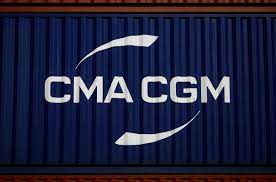The Impact of CMA/CGM’s Peak Season Surcharge on Nigerian Imports
The French shipping giant, CMA/CGM, has announced a $100 surcharge on twenty-foot equivalent units (TEUs) of container cargoes bound for Nigeria, effective May 1, 2025. This surcharge, termed a Peak Season Surcharge (PSS), applies to dry cargoes originating from China, Hong Kong, and Macau SAR and is specifically levied on short-term contracts. The move has sparked concern among licensed customs agents and freight forwarders in Nigeria, who fear the added cost will further burden importers and ultimately drive up consumer prices in an already fragile economy.
Peak Season Surcharges are common practice in the shipping industry, reflecting the increased operational costs associated with higher demand during specific periods. Shipping companies adjust these surcharges based on market dynamics and their own cost assessments. While the rationale behind the PSS is understandable from a business perspective, its implementation during a period of economic instability in Nigeria raises serious concerns. The timing of this surcharge coincides with ongoing economic challenges in Nigeria, characterized by high inflation and a depreciating currency. The added cost of importing goods will inevitably be passed on to consumers, exacerbating the financial strain on households and potentially hindering economic recovery.
Nigerian freight forwarders and clearing agents have expressed strong opposition to the surcharge. The Association of Registered Freight Forwarders of Nigeria (ARFFN) has vowed to resist the new charge, citing previous assurances from shipping companies that there would be no increase in fees. The ARFFN argues that the surcharge contradicts earlier commitments and will further escalate the already high cost of importation in Nigeria. Clearing agents echo these sentiments, emphasizing the negative impact on an already struggling economy and the potential for the added costs to be transferred to consumers. They urge regulatory agencies to intervene and protect importers from what they perceive as an unjustified burden.
The controversy surrounding the surcharge underscores the broader issue of the rising cost of doing business in Nigeria. Importers already face numerous challenges, including port congestion, bureaucratic delays, and high tariffs. The additional surcharge imposed by CMA/CGM will only exacerbate these difficulties, potentially leading to reduced imports, shortages of essential goods, and increased prices for consumers. The situation calls for a collaborative approach between shipping companies, government agencies, and stakeholders in the import-export sector to find sustainable solutions that balance the needs of businesses with the economic realities faced by Nigerian consumers.
A key question raised by this situation is the effectiveness of regulatory oversight in the shipping industry. While shipping companies are entitled to adjust their pricing strategies, there is a need for transparency and accountability in the implementation of surcharges. Regulatory bodies should play a more proactive role in monitoring the pricing practices of shipping companies and ensuring that surcharges are justified and do not unduly burden importers and consumers. This requires a robust regulatory framework that promotes fair competition and protects the interests of stakeholders across the supply chain. Open dialogue and collaboration between regulators, shipping companies, and industry associations are crucial to achieving this objective.
The CMA/CGM surcharge also highlights the vulnerability of import-dependent economies like Nigeria to external shocks. Fluctuations in global shipping costs and market dynamics can have a significant impact on domestic prices and economic stability. Diversifying the Nigerian economy and promoting domestic production are essential long-term strategies to mitigate the impact of such external factors. However, in the short term, measures are needed to address the immediate challenges posed by the surcharge. These could include negotiations between the government and shipping companies to explore alternative pricing models or temporary waivers of the surcharge. Ultimately, a balanced approach that considers the interests of all stakeholders is crucial to navigating this complex issue and ensuring the sustainable flow of goods into the Nigerian market.














